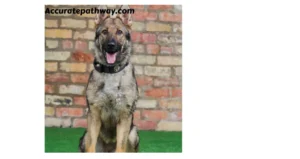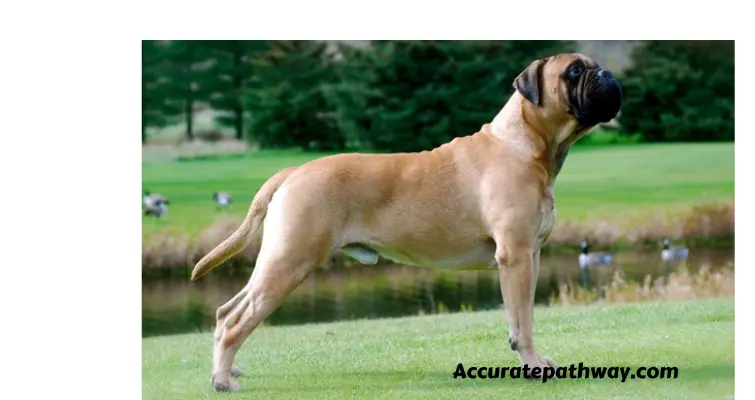In the realm of security, where technology and human vigilance stand as stalwart protectors, one often overlooked but indispensable asset prowls the frontline: security dogs. These four-legged guardians epitomize loyalty, courage, and an unparalleled instinct for detection. From sniffing out illicit substances to apprehending intruders, security dogs play a pivotal role in safeguarding premises, personnel, and assets across various domains.
A Noble Heritage.
The utilization of canines in security traces back millennia, rooted in their innate abilities and unwavering loyalty. Ancient civilizations recognized the unique talents of dogs in hunting, tracking, and guarding. In modern times, this primal partnership has evolved into a sophisticated symbiosis between man and beast, leveraging the remarkable sensory acuity of dogs for the purposes of security.
The Discerning Nose.
Central to the efficacy of security dogs is their olfactory prowess. Dogs possess a sense of smell far superior to humans, capable of detecting scents in parts per trillion. This remarkable ability makes them invaluable assets in detecting contraband such as drugs, explosives, and even agricultural products at ports of entry, airports, and border crossings. Their keen noses also enable them to track individuals over vast distances, aiding law enforcement in locating missing persons or apprehending fugitives.
Deterrent and Protector.
Beyond their olfactory superiority, the mere presence of a security dog serves as a potent deterrent against would-be intruders. Their intimidating stature and acute senses instill a sense of apprehension in trespassers, dissuading unauthorized access to secured premises. Moreover, security dogs undergo rigorous training to respond swiftly and decisively to threats, apprehending suspects with controlled aggression when necessary. This proactive capability enhances the effectiveness of security operations, providing an additional layer of defense against potential security breaches.
Diverse Specializations.
Security dogs are not a monolithic entity but rather a diverse array of breeds tailored to specific security requirements. German Shepherds, Belgian Malinois, and Dutch Shepherds are favored breeds for tasks requiring apprehension and protection due to their intelligence, athleticism, and loyalty. Labrador Retrievers and Beagles excel in detecting narcotics and explosives, owing to their keen sense of smell and trainability. Each breed brings unique strengths to the table, allowing security agencies to deploy dogs tailored to their operational needs.
Human-Canine Partnership.
Behind every effective security dog is a dedicated handler, forming a symbiotic partnership essential to their success. Handlers undergo extensive training to understand canine behavior, communication cues, and techniques for reinforcing obedience and skillsets. This bond of trust and mutual reliance fosters effective collaboration, enabling handlers to harness the full potential of their canine counterparts in the pursuit of security objectives.
Ethical Considerations.
While security dogs are undeniably valuable assets, their utilization raises ethical considerations regarding their welfare and treatment. It is incumbent upon security agencies and handlers to ensure that dogs receive adequate care, including proper nutrition, veterinary attention, and opportunities for rest and recreation. Furthermore, training methods should prioritize positive reinforcement and minimize stress and discomfort for the animals. Upholding high standards of animal welfare not only honors the partnership between humans and dogs but also maximizes the effectiveness and longevity of their service.
Best types of security dogs.

The best types of security dogs depend on various factors including the specific security needs, environment, and tasks required. Here are some breeds commonly known for their security capabilities:
German Shepherd: Renowned for their intelligence, loyalty, and versatility, German Shepherds excel in various security roles including protection, search and rescue, and police work.
Belgian Malinois: Similar to German Shepherds, Malinois are highly intelligent, agile, and possess strong protective instincts. They are often preferred in military and police applications due to their endurance and work ethic.
Rottweiler: Known for their strength, confidence, and protective nature, Rottweilers are excellent guard dogs. With proper training and socialization, they can be loyal and devoted family protectors.
Doberman Pinscher: Agile and alert, Dobermans are renowned for their fearlessness and loyalty. They are often used in personal protection, police work, and as guard dogs due to their natural protective instincts.
Boxer: Boxers are known for their boundless energy, strength, and courage. They are protective of their families and can be trained for various security tasks.
Bullmastiff: A large and powerful breed, Bullmastiffs are known for their physical strength and protective instincts. They are excellent deterrents due to their imposing presence.
Giant Schnauzer: With a combination of intelligence, loyalty, and territorial instincts, Giant Schnauzers make excellent guard dogs. They are highly trainable and protective of their families and territories.
Doberman Pinscher: Known for their sleek appearance and intelligence, Dobermans are often used in police work and as personal protection dogs. They are loyal, alert, and highly trainable.
Cane Corso: A muscular and imposing breed, Cane Corsos are known for their loyalty and protective nature. They are often used as guard dogs and excel in protecting property and families.
Dutch Shepherd: Similar to Belgian Malinois and German Shepherds, Dutch Shepherds are intelligent, agile, and possess strong protective instincts. They are versatile and excel in various security roles.
Conclusion:
Security dogs epitomize the timeless bond between humans and animals, leveraging their innate abilities to safeguard lives and assets in an increasingly complex security landscape. From detecting contraband to apprehending suspects, these four-legged guardians play an indispensable role in bolstering security across various domains. As technology advances and threats evolve, the enduring partnership between human handlers and their canine companions remains an enduring testament to the power of collaboration in the service of security.
